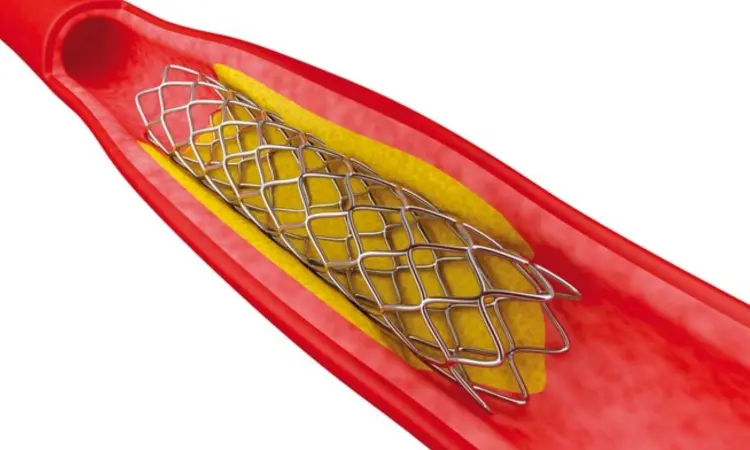- Home
- Medical news & Guidelines
- Anesthesiology
- Cardiology and CTVS
- Critical Care
- Dentistry
- Dermatology
- Diabetes and Endocrinology
- ENT
- Gastroenterology
- Medicine
- Nephrology
- Neurology
- Obstretics-Gynaecology
- Oncology
- Ophthalmology
- Orthopaedics
- Pediatrics-Neonatology
- Psychiatry
- Pulmonology
- Radiology
- Surgery
- Urology
- Laboratory Medicine
- Diet
- Nursing
- Paramedical
- Physiotherapy
- Health news
- Fact Check
- Bone Health Fact Check
- Brain Health Fact Check
- Cancer Related Fact Check
- Child Care Fact Check
- Dental and oral health fact check
- Diabetes and metabolic health fact check
- Diet and Nutrition Fact Check
- Eye and ENT Care Fact Check
- Fitness fact check
- Gut health fact check
- Heart health fact check
- Kidney health fact check
- Medical education fact check
- Men's health fact check
- Respiratory fact check
- Skin and hair care fact check
- Vaccine and Immunization fact check
- Women's health fact check
- AYUSH
- State News
- Andaman and Nicobar Islands
- Andhra Pradesh
- Arunachal Pradesh
- Assam
- Bihar
- Chandigarh
- Chattisgarh
- Dadra and Nagar Haveli
- Daman and Diu
- Delhi
- Goa
- Gujarat
- Haryana
- Himachal Pradesh
- Jammu & Kashmir
- Jharkhand
- Karnataka
- Kerala
- Ladakh
- Lakshadweep
- Madhya Pradesh
- Maharashtra
- Manipur
- Meghalaya
- Mizoram
- Nagaland
- Odisha
- Puducherry
- Punjab
- Rajasthan
- Sikkim
- Tamil Nadu
- Telangana
- Tripura
- Uttar Pradesh
- Uttrakhand
- West Bengal
- Medical Education
- Industry
Carotid artery stenting vs carotid endarterectomy for carotid artery stenosis: ACST-2 Trial

UK: Results from the ACST-2 trial of carotid artery stenting (CAS) versus carotid endarterectomy (CEA) show that the long-term effects of these two carotid artery procedures on fatal or disabling stroke are comparable. Also, serious complications were found to be similarly uncommon after competent CEA and CAS. The study is published in the journal The Lancet.
Either carotid artery stenting (CAS) or carotid endarterectomy (CEA) can reduce long-term stroke risks and restore patency among asymptomatic patients with severe carotid artery stenosis but no recent stroke or transient cerebral ischemia. However, recent national registry data showed that each option causes about 1% procedural risk of disabling stroke or death. There is a need for large-scale randomized evidence for comparing their long-term protective effects.
ACST-2 is an international multicentre randomized trial of CAS versus CEA among asymptomatic patients with severe stenosis thought to require intervention, interpreted with all other relevant trials. The trial included patients having severe unilateral or bilateral carotid artery stenosis and agreement of both doctor and patient that a carotid procedure should be undertaken, but they were substantially uncertain which one to choose.
Patients were randomly assigned to receive either CAS or CEA and followed up at 1 month and then annually, for a mean of 5 years.
Between Jan 15, 2008, and Dec 31, 2020, 3625 patients in 130 centers were randomly allocated, 1811 to CAS and 1814 to CEA, with good compliance, good medical therapy, and a mean 5 years of follow-up.
Based on the study, the researchers found the following:
- 1% had disabling stroke or death procedurally (15 allocated to CAS and 18 to CEA) and 2% had a non-disabling procedural stroke (48 allocated to CAS and 29 to CEA).
- Kaplan-Meier estimates of 5-year non-procedural stroke were 2·5% in each group for fatal or disabling stroke, and 5·3% with CAS versus 4·5% with CEA for any stroke (rate ratio [RR] 1·16).
- Combining RRs for any non-procedural stroke in all CAS versus CEA trials, the RR was similar in symptomatic and asymptomatic patients (overall RR 1·11).
"The main finding from the ACST-2 trial of CAS versus CEA is that the effects of the two procedures on disabling or fatal events are approximately equal in terms of procedural hazards (about 1% for each treatment, in line with findings from large, representative registries) and of 5-year disabling stroke rates (which were about 0·5% per year with either procedure, suggesting that they would have been about 1% per year with neither procedure)," Prof Alison Halliday, Nuffield Department of Population Health, University of Oxford, Oxford, UK, and colleagues wrote.
"This trial does not address the question of whether, or when, a carotid intervention would be appropriate, as it was restricted to patients in whom intervention was considered necessary, and all participants were to receive CAS or CEA," they concluded.
Reference:
The study titled, "Second asymptomatic carotid surgery trial (ACST-2): a randomised comparison of carotid artery stenting versus carotid endarterectomy," is published in The Lancet.
DOI: https://www.thelancet.com/journals/lancet/article/PIIS0140-6736(21)01910-3/fulltext
Dr Kamal Kant Kohli-MBBS, DTCD- a chest specialist with more than 30 years of practice and a flair for writing clinical articles, Dr Kamal Kant Kohli joined Medical Dialogues as a Chief Editor of Medical News. Besides writing articles, as an editor, he proofreads and verifies all the medical content published on Medical Dialogues including those coming from journals, studies,medical conferences,guidelines etc. Email: drkohli@medicaldialogues.in. Contact no. 011-43720751


